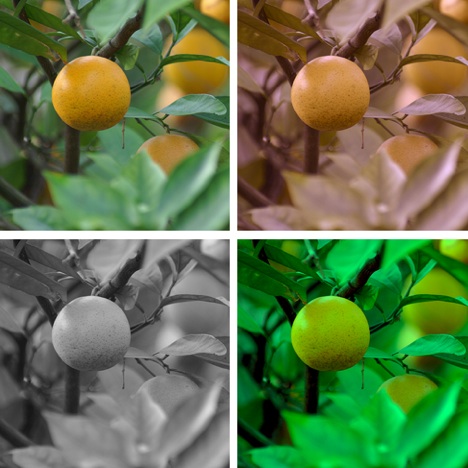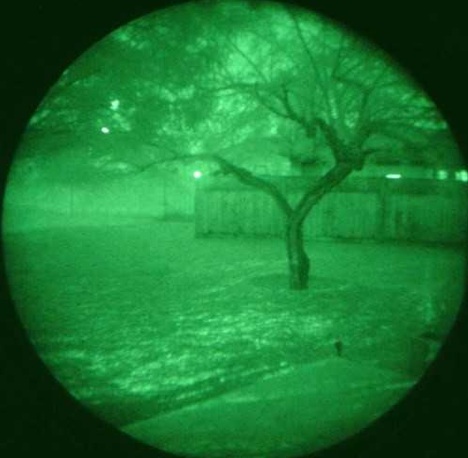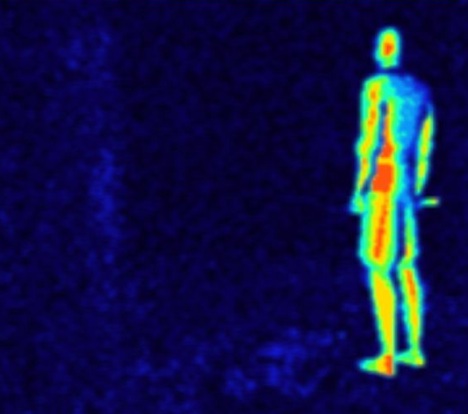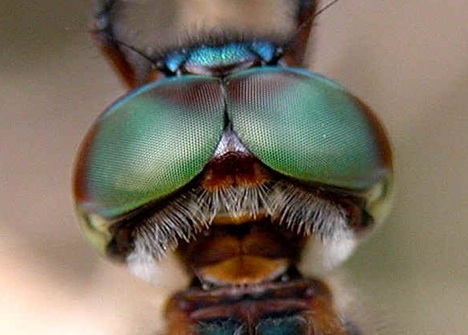TaRaN.rbk
ImmorTaL KhalsA
Animal Vision: Amazing World of Vision Diversity
For centuries, humans were in the dark about what and how other animals see. Recent scientific investigation has revealed an amazing world of vision diversity. Like the dragonfly - its brain works so fast that it sees movements as if in slow motion. Or the pigeon - which is capable of detecting more subtle gradations of color than the most advanced computer program. Or the snake - there is no escaping heat vision.
Horses: Horses have an amazing range of vision - that is, except for what is right in front of them. They literally can’t spot whatever is between their eyes and therefore directly ahead due to their binocular vision. This is why they so often look down as they walk.

Monkeys: Old world monkeys and apes mainly see as humans do - they are trichomats, so they pick up red, green, and blue. But many new world monkeys do not. There is no real pattern among species. In fact, in the same family of monkeys there can be up to six different types of color blindness or vision. As with their human cousins, color blindness is more common in males than in females.

Birds: Many birds can see differently. Pigeons, for example, can see literally millions of different hues and are thought to be among the best at color detection ability of any animal on earth. They have many more cones than humans in their eyes, thus accounting for the ability to see at least five spectral bands.

Cats and Dogs: Cats and dogs do not have strong vision. They rely on scent and sound primarily as their sensory detection. Cats in particular have weak vision. They are color blind, and cats more so than dogs. Dogs can sometimes tell the difference between yellow and blue, for example. Most cats can only detect a little color, and are best at focusing on one object narrowly (for hunting). But they do have better night vision than humans. Both dogs and cats have better perspective and depth perception, due to the placement of their eyes, than human beings do.

Snakes: Snakes have two sets of eyes. One set is the normal eyes that you see, and they detect color quite well. But they also have vision pits that detect heat and “see” living creatures like an infrared detector. There is no getting away from a snake once you’re spotted. That closed door won’t help. Luckily most snakes are more likely to retreat than attack.

Insects: Because of segmented eye structure, many insects see objects very differently from what humans perceive. Insects are famous for their dot-like eyes, known as ommatidia. Some have as many as 30,000 lenses per eyeball. But perhaps most interesting is the dragonfly. This insect’s brain works so rapidly, it perceives most movement in slow motion. Insects do see color, but not usually as clearly as other animals. Their vision assists them in detecting movement. That’s why they’re so hard to kill!

For centuries, humans were in the dark about what and how other animals see. Recent scientific investigation has revealed an amazing world of vision diversity. Like the dragonfly - its brain works so fast that it sees movements as if in slow motion. Or the pigeon - which is capable of detecting more subtle gradations of color than the most advanced computer program. Or the snake - there is no escaping heat vision.
Horses: Horses have an amazing range of vision - that is, except for what is right in front of them. They literally can’t spot whatever is between their eyes and therefore directly ahead due to their binocular vision. This is why they so often look down as they walk.

Monkeys: Old world monkeys and apes mainly see as humans do - they are trichomats, so they pick up red, green, and blue. But many new world monkeys do not. There is no real pattern among species. In fact, in the same family of monkeys there can be up to six different types of color blindness or vision. As with their human cousins, color blindness is more common in males than in females.

Birds: Many birds can see differently. Pigeons, for example, can see literally millions of different hues and are thought to be among the best at color detection ability of any animal on earth. They have many more cones than humans in their eyes, thus accounting for the ability to see at least five spectral bands.

Cats and Dogs: Cats and dogs do not have strong vision. They rely on scent and sound primarily as their sensory detection. Cats in particular have weak vision. They are color blind, and cats more so than dogs. Dogs can sometimes tell the difference between yellow and blue, for example. Most cats can only detect a little color, and are best at focusing on one object narrowly (for hunting). But they do have better night vision than humans. Both dogs and cats have better perspective and depth perception, due to the placement of their eyes, than human beings do.

Snakes: Snakes have two sets of eyes. One set is the normal eyes that you see, and they detect color quite well. But they also have vision pits that detect heat and “see” living creatures like an infrared detector. There is no getting away from a snake once you’re spotted. That closed door won’t help. Luckily most snakes are more likely to retreat than attack.

Insects: Because of segmented eye structure, many insects see objects very differently from what humans perceive. Insects are famous for their dot-like eyes, known as ommatidia. Some have as many as 30,000 lenses per eyeball. But perhaps most interesting is the dragonfly. This insect’s brain works so rapidly, it perceives most movement in slow motion. Insects do see color, but not usually as clearly as other animals. Their vision assists them in detecting movement. That’s why they’re so hard to kill!


